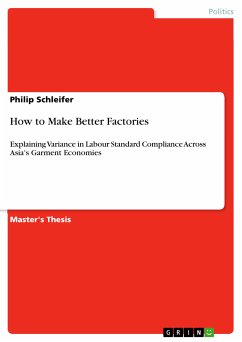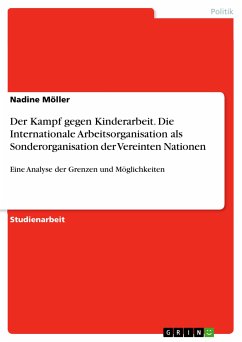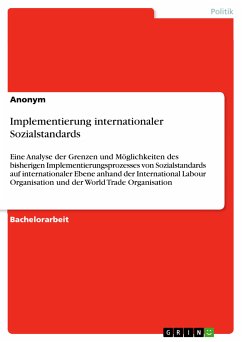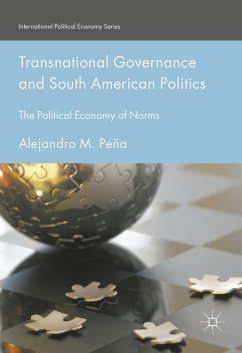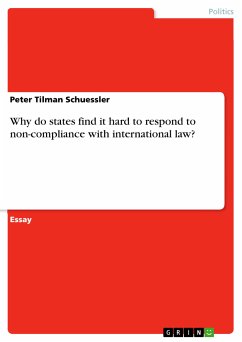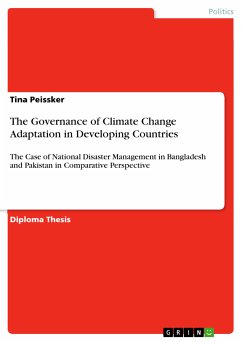Master's Thesis from the year 2009 in the subject Politics - International Politics - Topic: Development Politics, grade: 1,0, Free University of Berlin (Otto-Suhr Institut für Politikwissenschaft), language: English, abstract: How can new governance arrangements such as public-private partnerships contribute to business regulation in developing economies? More specifically, which governance instruments are best suited to make domestic for-profit actors comply with social standards? Seeking to address these broader questions, this study opens with a puzzle of varying degrees of labour standard compliance across Asia’s garment economies. Whereas problems with labour standards persist throughout the region, evidence points to improved compliance in Cambodia’s garment sector. This improvement is supposed to be due to an innovative policy project called Better Factories Cambodia, which involves public and private actors from different levels to induce compliance in an extremely difficult environment. Drawing on compliance theory, the study advances the hypothesis that this success is due to a combination of management and enforcement instruments. A comparison of Cambodia’s and Bangladesh’s garment sectors and a process analysis of the causal mechanisms in operation verify this complementary-compliance-hypothesis. Thereby, the study lays a foundation for future theory-guided research on business regulation through new modes of governance.

